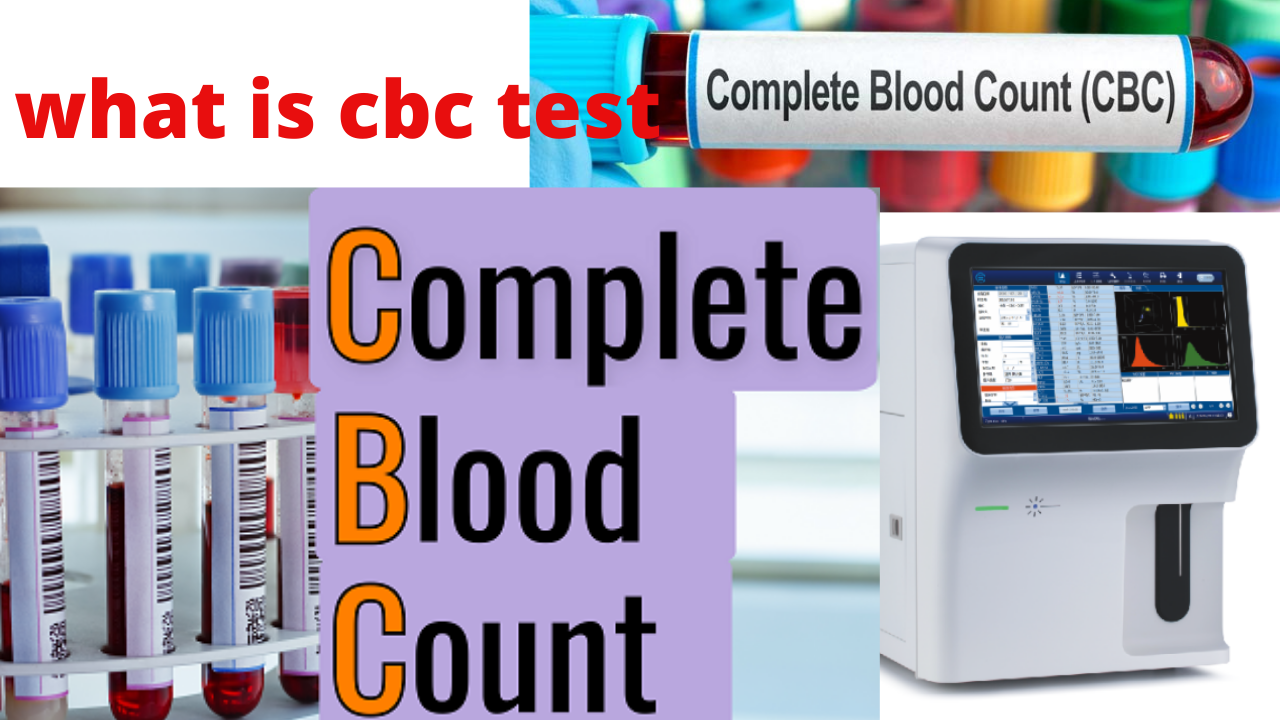What is a CBC test ?
What is a cbc test? its long-form is complete blood count. CBC is a simple and really common test that screens all health disorders which can affect your health.
A CBC determines if there are any increases or decreases in your blood corpuscle counts. Normal values vary counting on your age and your gender. Your lab report will tell you the count range for your age and gender.
A CBC test can help to diagnose a broad range of conditions, from anaemia, infection to cancer.
Basic types of blood cells.
There are three basic types of blood cells found.
Measuring changes in your blood corpuscle levels can help your doctor evaluate your overall health and detect any disease. The test measures the three basic sorts of blood cells.
Red blood cells
Red blood cells carry oxygen throughout your body and take away CO2. A CBC tests counts two components of your red blood cells:
Haemoglobin: It is an oxygen-carrying protein present inside red blood cells.
Hematocrit: It is a percentage of red blood cells in your blood.
Low levels of haemoglobin and hematocrit are often signs of anaemia, a condition that happens when blood is deficient in iron.
White blood cells
White blood cells help your body fight infection. A CBC measures the amount and kinds of white blood cells in your body. Any abnormal increases or decreases within the normal limit of white blood cells might be a symbol of infection, inflammation, or cancer.
Platelets
Platelets help your grume and control bleeding. When a cut stops bleeding, it’s because platelets do their job. Any changes in platelet levels can put you in danger of excessive bleeding and may be a symbol of a significant medical condition.
When maybe a CBC ordered?
Your doctor may order a CBC as a part of a routine checkup or if you’ve got unexplained symptoms like bleeding or bruising. A CBC can help your doctor do the subsequent.
Evaluate your overall health. Many doctors will order a CBC so that they can have a baseline view of your health. A CBC also helps the doctor to detects any health problems.
Diagnose ill-health. Your doctor may order a CBC if you’ve any unexplained symptoms like weakness, tiredness, pus formation lump, fever, any swelling, or any type of bleeding.
Monitor ill-health. Your doctor may regularly order CBCs to watch your condition if you’ve got been diagnosed with a disorder that affects blood corpuscle counts.
Monitor your treatment. Certain medical treatments can affect your blood corpuscle counts and should require regular CBCs. Your doctor can evaluate how well your treatment is functioning supported your CBC.
Getting ready for a CBC
Make sure to wear a short-sleeved shirt or a shirt with sleeves that you simply can easily roll up.
You can go to laboratory after eating normally before a CBC. However, your doctor may require that you simply fast for a selected amount of your time before the test. That’s common if the blood sample is going to be used for extra testing. Your doctor will offer you specific instructions.
What happens during a CBC?
During a CBC, a lab technician will draw blood from a vein, typically from the within of your elbow or from the rear of your hand. The test will be complete within few minutes.
The technician cleans your skin with sterillium lotion or spirit,
places a rubber band, or tourniquet, around your upper arm to assist the vein swell with blood,
inserts a needle within your and collects a blood sample in one or more vials.
Removes the rubber band and will apply small sticking to the injection site.
He will label your sample and send it to a lab for analysis.
Most CBC results are available within a couple of hours to each day after testing.
For infants
In young infants, a nurse will typically sterilize the heel of the foot of the baby and use a little needle called a lancet to prick the heel. The nurse will then gently squeeze the heel and collect a little amount of blood in a vial for testing.

What do the results mean?
Test results will vary supported your blood corpuscle counts. Here are the traditional results for adults, but different labs may deliver slight variations:
Blood component Normal levels
Red blood cell In men: 4.32-5.72 million cells/mcL
In women: 3.90-5.03 million cells/mcL
Hemoglobin In men: 135-175 grams/L
In women: 120-155 grams/L
Hematocrit In men: 38.8-50.0 percent
In women: 34.9-44.5 percent
White blood corpuscle count 3,500 to 10,500 cells/mcL
Platelet count 150,000 to 450,000/mcL
A CBC isn’t a definitive diagnostic assay. blood corpuscle counts that are too high or too low could signal a good sort of conditions. Specialized tests are needed to diagnose a selected condition. Conditions that would cause an abnormal CBC and should require additional testing include:
Iron or other vitamin and mineral deficiencies
bleeding disorders
heart disease
autoimmune disorders
bone marrow problems
infection or inflammation
reaction to medication
If your CBC shows abnormal levels, your doctor may order another test to verify the results. they’ll also order other tests to assist further evaluate your condition and ensure a diagnosis.
[contact-form][contact-field label=”Name” type=”name” required=”true” /][contact-field label=”Email” type=”email” required=”true” /][contact-field label=”Website” type=”url” /][contact-field label=”Message” type=”textarea” /][/contact-form]


